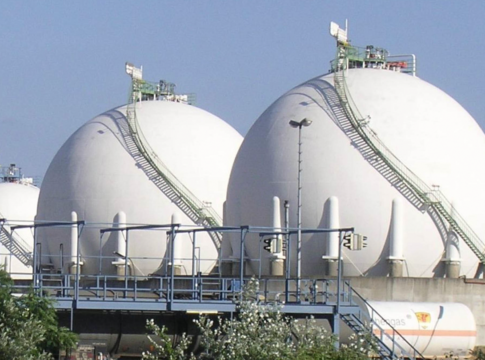Egypt undertook a harsh economic reform programme in the last mandate of president El-Sisi. This programme included reducing government power subsidies, floating local currency against the dollar and implementing tax reforms. The programme managed to attract more foreign investments in 2017 as it rose up by 26% to 8.7 billion dollars from 6.9 billion dollars in the year before according to Egyptian minister of investment as published by Reuters.
The programme also increased foreign reserves and improved Egypt’s credit rating from stable to positive, Sky news Arabia. Nevertheless, the biggest challenge against El-Sisi’s popularity has been the soaring prices and high inflation rates that resulted from these economic reforms. Some economists like Faraj Abdel Fattah, a professor of economics at the University of Cairo, believe that El-Sisi’s economic programme for his second mandate will aim at curbing inflation by reducing imports and increasing exports, mainly natural gas and petrol exports. This dynamic will ensure more foreign exchange liquidity to curb the dollar price against the Egyptian pound, Al Monitor.
Working on restraining inflation does not mean that the government is finished with its ambitious economic reform programme. On 13th of April 2018 the Ministry of Finance announced that Egypt is targeting a primary surplus of 2 percent of GDP in its 2018-19 fiscal year budget as it looks to tighten its finances and push ahead with economic reforms. The 2 percent target would be a marked improvement from the 0.3 percent primary surplus the government expects to achieve in the current fiscal year. A primary surplus means that the state’s revenues cover expenses before interest payments on debt, Reuters. In Jan 2018 the finance ministry had announced that Egypt’s primary budget deficit has reached its lowest in 10 years when it fell to 0.3 percent of GDP, recording EGP 14 billion in the first half of fiscal year 2017-18, down from 1.1 percent of GDP, or EGP 39 billion, in the same period during the previous fiscal year, Al-Ahram. Inflation rates had been announced to decline to 19.8% in December 2017 compared to 25.4% in November by the Central Agency for Public Mobilisation and Statistics, Al-Ahram.
The ministry of finance is proposing to the Egyptian parliament to cut its fuel and electricity subsidy bills by 19% and 48% respectively. If the proposals are approved, the total energy bill will account for 7.3% of government expenditure. “If we leave it like this, the debt level will increase, the deficit level will increase and things will be much, much tougher,” Amr Al-Garhy, minister of finance told the Financial Times on April 2018. According to the same source, the finance ministry is estimating growth of 5.8% in the financial year to July 2019 and targeting narrowing the deficit to 8.4% of GDP. It projects that debt will come down to 91% of GDP, but more than a third of government expenditure will still be spent on interest payments. The IMF projects the estimated growth at 5.2 percent in 2018 and a rate of 5.5 in 2019, compared to 5 percent in October of 2017, World Economic Outlook.
Richard Dictus, united Nations’ Coordinator in Egypt said in an interview by Al-Watan newspaper that the Egyptian economy is projected to maintain a near-term momentum in a year and half due to the latest economic measures taken by the Egyptian government. He added that that the implementation of the recent economic reforms in Egypt will subsequently promote development, reduce poverty and unemployment rates. He also highlighted the Egyptian government’s launch of a series of social programs to ease commodities price hikes led by the economic measures.
On another positive position for the Egyptian economy, Russian airliner Aeroflot’s first flight to Egypt, since the tragedy of a 2015 terror attack over the Sinai Peninsula, departed for Cairo on April 11, and the passengers received flowers as a greeting gift. The next day, an Egypt Air flight landed in Moscow. In 2014, a year before the tragedy, Russian citizens made up the largest group of all foreign tourists visiting the country. According to the Russian Federal State Statistics Service (Rosstat) in 2014, 2.6 million Russians spent their vacations in Egypt, which was one-third of the entire tourist flow that year, Al-Monitor. Regaining tourism and maintaining the flow of direct foreign investments will unquestionably shorten the time span needed for the economy to flourish.


